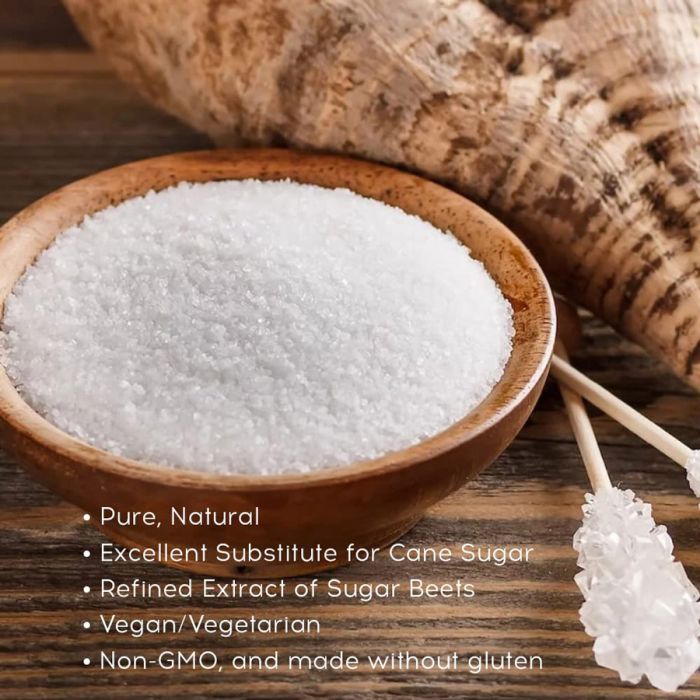Many consumers wonder if beet sugar vs cane sugar makes a difference in nutrition.
Many consumers wonder if beet sugar vs cane sugar makes a difference in nutrition.
Blog Article
Discovering the Distinctions in Uses and Benefits In Between Beet Sugar Vs Cane Sugar
In the cooking world, the choice in between beet sugar and cane sugar is not simply regarding sweetness however involves a nuanced factor to consider of taste, application, and impact. While both sugars stem from different plants, each undergoes one-of-a-kind production procedures that subtly influence their characteristics and viability for numerous meals.
Origins and Manufacturing Processes of Beet and Cane Sugar

Walking cane sugar, on the other hand, comes from the sugarcane plant, an exotic turf indigenous to Southeast Asia but now grown in exotic zones worldwide. The manufacturing of cane sugar starts with the harvesting of cane stalks, which are crushed to launch the juice. This juice is then steamed to focus it, after which it is spun in centrifuges to create raw sugar crystals. These crystals are more refined to create the white sugar generally available in shops.

Nutritional Material and Wellness Considerations

When comparing the dietary material of beet sugar and cane sugar, it becomes apparent that both types essentially supply the same caloric values, with around 16 calories per tsp and no significant nutrient variety. Each is made up practically completely of sucrose, which is a simple carbohydrate that uses fast power but does not have vitamins, minerals, or fiber. This resemblance extends to their influence on wellness, particularly concerning blood glucose degrees. Both sugars, when eaten over, can add to elevated blood sugar degrees, a threat element for diabetic issues and various other metabolic problems. Excessive intake can lead to weight gain and oral issues, as both sugars are just as cariogenic, advertising tooth decay. From a health and wellness viewpoint, regulating consumption of any kind of kind of sugar, whether from beet or cane, is advisable to prevent these prospective unfavorable results on health. Hence, neither holds a distinct advantage over the other in regards to health and wellness advantages.
Flavor Accounts and Culinary Applications
Regardless of their comparable chemical structures, beet sugar and cane sugar vary discreetly in flavor, which can influence their usage in different culinary contexts. Walking cane sugar usually brings a hint of molasses, also in its polished form, offering a warm, caramel-like touch that improves baked items, coffee, and chocolate-based dishes. This slight molasses taste is particularly valued in the cooking market for including depth to sweets and breads. On the other hand, beet sugar is identified by its extremely improved, neutral taste, making it a versatile sugar that does not modify the flavor accounts of meals. This neutrality is particularly beneficial in fragile recipes, such as light breads, lotions, and some sauces, where the intrinsic flavors of various other ingredients are planned to stick out. Cooks and food producers could choose one type of sugar over the various other based on the desired taste end result of their culinary developments.
Environmental Impact and Sustainability
While both beet and cane sugars are obtained from plants, their ecological influences vary dramatically due to the distinct methods of cultivation and web link processing required for each. click this site Sugar beet cultivation frequently includes substantial automation, which can boost nonrenewable fuel source intake and carbon discharges. Beetroots can be expanded in cooler climates and need much less watering, possibly reducing water usage compared to sugarcane. Sugarcane, on the other hand, is commonly expanded in exotic regions where it depends heavily on irrigation and a longer growing period, raising its water footprint.
Additionally, the handling of sugarcane typically generates a substantial quantity of waste, consisting of bagasse, which, although functional as biofuel, frequently adds to air contamination if burned inefficiently. Sugar beet handling makes use of more of the raw products, causing less waste. Both industries encounter challenges in lowering their environmental footprints, but recurring advancements in agricultural practices and waste monitoring are aiming to enhance sustainability.
Economic Aspects Influencing the Sugar Industry
The economic characteristics of the sugar industry are substantially affected by global market needs and profession policies. In areas where sugarcane or sugar beet manufacturing is subsidized, producers may have an economic advantage that enables them to provide lower costs on the worldwide market.
Furthermore, changes in international need for sugar, affected by nutritional patterns and industrial use in food, directly impact prices and production levels. beet sugar vs cane sugar. Climate problems likewise play an essential role, as they can dramatically affect plant returns and, consequently, the supply chain. This variability introduces a degree of economic uncertainty that can cause financial investment volatility in sugar manufacturing industries, influencing decisions from growing to market approach
Verdict
In verdict, both beet and cane click here to find out more sugar have distinct qualities that fit different culinary demands. While cane sugar imparts an abundant flavor suitable for enhancing baked products, beet sugar's nonpartisanship is ideal for lighter recipes.
Report this page